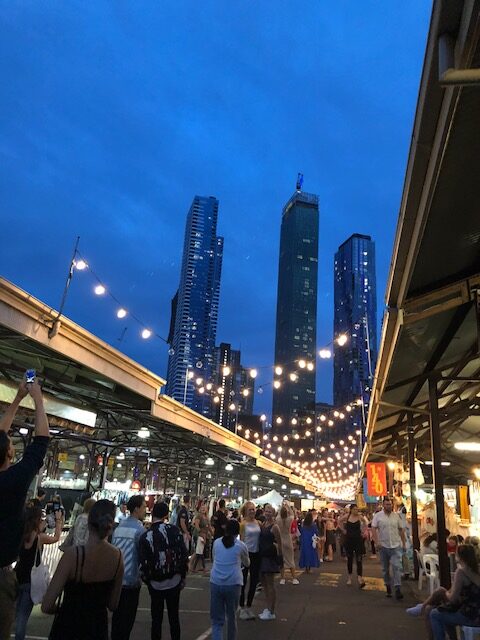Taking the Time to Safely Explore Your Local Area


When we talk about study abroad, all too often we describe the 10 different places visited during our time away from the USA. It is true that having the opportunity to travel to so many interesting places is extremely rewarding and allows for personal growth. However, we often overlook the connection with our local area that is at our fingertips. Choosing to stay in the area a couple of weekends does not mean you’re lame or you’re doing study abroad wrong. It allows you to bring your study abroad base location, in my case Melbourne, into your study abroad narrative. Here is my take on why it’s worth giving your local area a second glance and how to safely do so!
Safety Tips
Let’s start off with safety! That wonderful, yet intense, word everyone drones on about when you’re traveling to a foreign place. Contrary to popular youth belief, it’s actually quite important to think about and begins with having common sense and trusting your intuition. But for those who enjoy more tangible, list-form things, here are a couple tips I’ve found helpful while abroad.
The Buddy System: a time-tested way to explore the area, especially in the first couple weeks. Try to find a friend to walk to that new bar or café or art exhibition with.
Walk with Confidence: this helps you blend in with the locals and removes any invisible tourist label you may have.
Carry Technology that can Connect to Internet/Maps: make sure you can navigate your local area before you leave the comfort of your home. A great app is maps.me which lets you download and pin locations offline or download offline google maps.
Stay Vigilant: just because you’ve made the walk to your uni (school) a million times doesn’t mean you should ignore your surroundings. Those headphones in your ears provide much entertainment, but maybe turn the volume down a bit so you can still hear things around you.
Exploring on a Budget

Once you feel safe in the area you’re in, it’s time to go exploring and let your curiosity flourish. As a First-Generation student, I realized early on that I was operating on a smaller budget than many of my study abroad mates. To offset this difference but still feel like I was exploring new areas, I began letting my curiosity take me to nearby places around me. I realized early on that Melbourne had a lot more to offer than just the central downtown area. And I realized almost as instantaneously that my legs would become my favorite source of transportation. Not only was it free to walk anywhere, but as I was walking from point A to B, I discovered hundreds of cool shops, street art, and interesting scenery along the way.
By going around the city I am calling home and its surrounding neighborhoods, I was able to save up some money to do a big trip instead of taking a couple 2 or 3-day trips. I went to New Zealand with some study abroad friends, felt as though I was living up to the ideals of travel in study abroad, and still got to check out the nooks and crannies of my local area. It’s almost like the best of both worlds where my wallet wasn’t hating me in the end.
Going around the local area provides opportunities to connect with the local environment. You might stumble upon an open concert, find a great outdoor study/lounging space, contemplate life (as so many study abroad students end up doing), or just appreciate your local environment back at home a little more. You’ll inevitably find free events or places worth checking out and could plan an entire weekend of exploring new areas that costs $0.
Local Connections

Apart from all the cost benefits, exploring the area enhances opportunities to form connections with the larger community. It’s also a good way to better understand the cultural practices of the place you’ve gone abroad to. While exploring, you notice the mannerisms, form of dress, food and lifestyle choices typical of the local community. These aren’t things you normally pick up within a week of being abroad; they’re more things you realize you’re able to explain when someone asks you a couple months in what it’s like being there. You understand the things that are different between your own culture and another because they tend to be things that bother you or inspire you about the place you’re in.
For me, a way to know if I’ve really gotten to know the place I’m in is asking myself whether I could show someone around for a weekend and whether I can recommend places to eat or activities to someone traveling to the place I’ve been calling home for 4 months. Exploring your specific study abroad location makes for a truly authentic study abroad experience. It’s perfectly acceptable to say no to a weekend trip you’re not too keen on and use your very free legs to get you all around the area. Soon enough, you’ll be picking your favorite hangout and study spots and giving tourists directions on the street like a local.
Gabriella S. | Physics and Women, Gender, and Sexuality Studies major | Franklin & Marshall College | University of Melbourne Partnership in Australia | Spring 2018